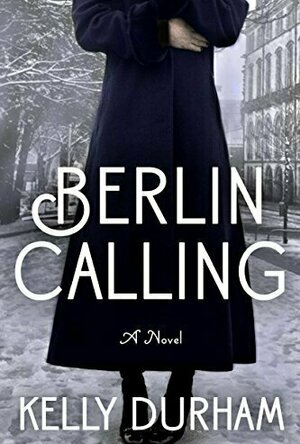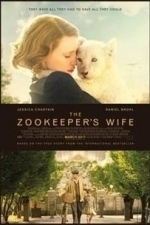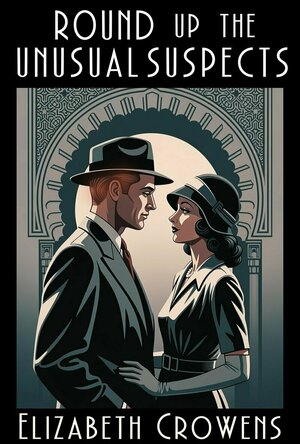
Round Up the Unusual Suspects (A Babs Norman Hollywood Mystery #3)
Book
Against the backdrop of WWII, no one expected to find a murdered stagehand on a Warner Brothers...
Historical Mystery

Translate Pro - Dictionary & Translator - Photo and Voice translation in 80+ languages
Business and Utilities
App
Translate is a powerful tool that will help to break down language barriers. It gathers together,...
BookInspector (124 KP) rated Berlin Calling in Books
Sep 24, 2020
The plot of this book was really absorbing, and different from most of the WWII books I read. Normally, I encountered the books, which used to describe the tragedy of war, such as concentration camps or Jew’s killings, and their fighting for survival. This book was softer on that part, it mentioned the cruelties’ which happened during the war, but never in so much detail to make it stomach turning. It was written more about the political aspects of it, and how German propaganda was used to influence people from other countries. It’s been a while since I studied history of WWII, and I studied from different countries’ perspective, so to see how it looked from Germany's perspective was quite appealing. I think that author was trying to show, how Germans thought about this war and why most of them supported what Hitler was doing.
I am a big fan of short chapters, and this book didn’t disappoint me with that. The chapters were divided into smaller parts, which made it more pleasant to read. Every chapter was quite detailed, but the meaning and the point of that chapter was very lovely opened, and concluded for the reader. The story was flowing nicely and smoothly. I believe Author has a great personal knowledge about war, and used it greatly in this book. There was a little bit of monotony while reading this book, and lack of twists and turns, that would’ve make it more exciting. The language used was not difficult and easy to read, but I had to look up some German terms used in this book, as I’m not familiar with the language. The ending of the book was really entertaining but not complete. I wished more conclusions, and to know what happened to Dieter. To conclude, it is a great book if you looking for World War II stories of war from German perspective, love, and survival.

Translate - Dictionary & free Translator - Photo and Voice translation in 80+ languages
Business and Utilities
App
Translate is a powerful tool that will help to break down language barriers. It gathers together,...
Suswatibasu (1703 KP) rated The Zookeeper's Wife (2017) in Movies
Nov 24, 2017 (Updated Nov 24, 2017)
Dr. Jan Zabinski was the director of the Warsaw Zoo in the 1930's, and along with his wife Antonina and young son, they ensured the safety and care of animals in the area. Their life came to an abrupt halt with the German invasion of Poland in 1939, when most of their animals and structures were destroyed in the bombings and siege of the city. The zoo was closed under German occupation, but the Zabinskis continued to occupy the villa, and the zoo itself was used first as a pig farm and subsequently as a fur farm. All the while, Dr Zabinski smuggled Jewish people out of the Warsaw Ghetto and aided their way out of city, not before allowing them to stay in their own house. He was injured while fighting in the Polish resistance, but the couple were given an honorary title by Yad Vashem (Israel's official memorial for Jewish victims of the Holocaust) for their brave efforts.
Similar in the vein of films such as @Schindler's List (1993), there is an element of a saviour complex in these films, but unlike Steven Spielberg's Oscar-winner, it is less extravagant and less well-made, as there was very little engagement with the Jewish characters - focusing more on Antonina, played by Jessica Chastain. It is definitely heart-wrenching watching films based on the holocaust, and there were scenes I had to turn away from, such as when an elderly woman and her mother were shot dead in the streets by soldiers. The script and cinematography weren't at a high standard, however, and as a result the film definitely fell short. I would suggest reading the book @The Zookeeper's Wife - it has far more detail than the film, in which there were glaringly obvious plot holes.

Lingrid - Language Cloud - Translate & Learn Lingo
Education and Utilities
App
Translate multiple languages at once! Listen to memorize. Edit and organize. Supported by the cloud...

6000 Words - Learn English Language for Free
Education and Games
App
---All 6,000 words can be unlocked for FREE (by earning flowers)!--- FunEasyLearn is the easiest...

6000 Words - Learn Japanese Language for Free
Education and Games
App
---All 6,000 words can be unlocked for FREE (by earning flowers)!--- FunEasyLearn is the easiest...
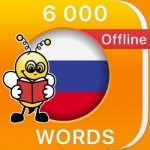
6000 Words - Learn Russian Language & Vocabulary
Education and Games
App
---All 6,000 words can be unlocked for FREE (by earning flowers)!--- FunEasyLearn is the easiest...
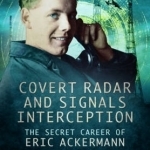
Covert Radar and Signals Interception: The Secret Career of Eric Ackermann
Peter Jackson and David Haysom
Book
Of German stock dating back to 1530 in Saxony, Eric George Ackermann GM was born on the Isle of...
